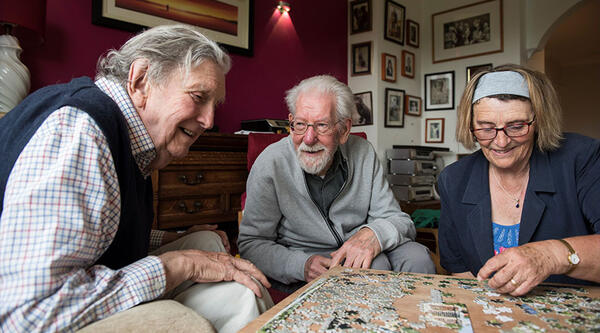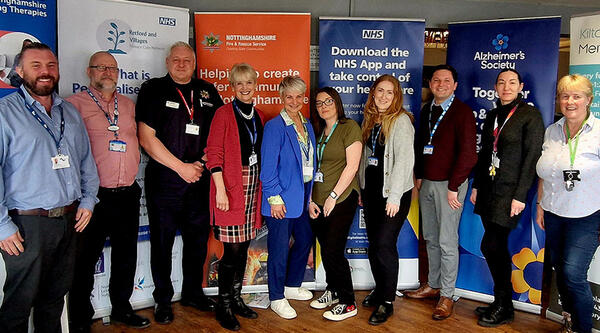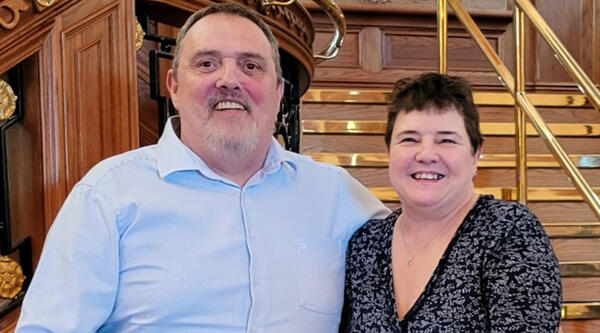Other health professionals
You may see other health professionals in your home, a care home or in hospital. These professionals provide help with specific areas of physical health listed in this section.
- Health and social care professionals
- Doctors
- Nurses
- You are here: Other health professionals
- Social care professionals
Mobility
You may need some support to stay physically mobile or active, particularly if you have had an operation or fall. You may also need special equipment of changes to your home. The following professionals can help.
Occupational therapists
Occupational therapists (often called OTs) can advise you on how to maintain skills and live independently for as long as possible. They can also advise about assistive technology ‘gadgets’ as well as about equipment and adaptations for your home. Some occupational therapists work for the NHS (ask your GP or consultant) and some for social services (ask the council). If you would prefer to see one privately, contact the College of Occupational Therapists Specialist Section – Independent Practice.
Physiotherapists
Physiotherapists can advise you on exercise and moving around. They can also advise carers on ways of helping someone to move around safely. You can see a physiotherapist at your local hospital, or sometimes at the GP surgery. Home visits can also be arranged. Your GP can arrange an appointment for you. If you would prefer to see a private physiotherapist, make sure they are appropriately qualified. The Chartered Society of Physiotherapy can provide contact details of a private physiotherapist in your area.
Chiropodists
Having healthy, pain-free feet will help you to keep mobile. A chiropodist is trained to look after people’s feet and advise you on proper foot care. Ask at the GP practice to see an NHS chiropodist (also known as a podiatrist), but be aware that there may be restrictions on who can be referred. To find a private chiropodist or podiatrist, contact the College of Podiatry.
Vision, hearing and speech
The following professionals look after your eyes and ears, as well as helping you communicate.
Optometrists
Problems with sight can make you more confused. This is why it’s important to have your eyesight checked regularly by an optometrist. If you do not have one, ask your GP to recommend someone. Ideally, it is better to find an optometrist who has experience of seeing people with dementia. People aged over 60, and some under-60s who have dementia, are entitled to a free NHS eye examination. Ask your local GP surgery for advice.
Audiologists
As with vision, problems with hearing can increase confusion and can leave you feeling isolated. An audiologist can check for hearing problems and fit a hearing aid, if required. If you already have a hearing aid, use it and make sure it is regularly checked. Hearing tests, equipment and equipment checks are free on the NHS. Ask your GP for a referral to the nearest NHS hearing centre.
Speech and language therapists
Speech and language therapists can advise you and your carer on ways of communicating more effectively, and on coping with any swallowing difficulties. Your GP may be able to refer you, or you can contact the local speech and language department directly.
Music therapists
Music therapists use music to help with symptoms of anxiety or restlessness, or help you to express yourself or reminisce. They will engage you in a shared musical experience, through singing, listening or making music.
Oral health, nutrition and continence
The following professionals will help you look after your teeth and mouth, diet, bowels and bladder.
Dentists
You should get dental advice soon after a diagnosis, because treatment may become more difficult as symptoms progress. Have regular check-ups to keep your teeth and gums healthy, or to make sure dentures are comfortable – if you wear them.
Dietitians
A dietitian can give you advice about what to eat. They can tell you about poor appetite, weight loss, weight gain, vitamins and food supplements. A professionally qualified dietitian will have the letters ‘SRD’ (State Registered Dietitian) after their name. Ask your GP or consultant about a referral. Some dietitians may be able to come to your home, while others may be based at a local health centre or hospital.
Continence advisers
If you are having problems using the toilet, a continence adviser can offer helpful advice. They can also give you information on useful equipment such as commodes and incontinence pads, which can help you to live independently and stay clean. The GP may be able to refer you to one in your area. You can also get in touch with an adviser directly by calling your local hospital.








